By JULIE MINDA
Ministry health systems and facilities are increasing their efforts on health equity, social determinants of health and mental health and their foundations are helping fuel that work.
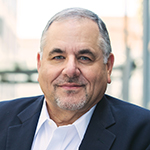
Najjar
Fred Najjar, executive vice president and chief philanthropy officer for Chicago-based CommonSpirit Health, says that system and its hospitals and their foundations always have sought to be upstream of health concerns, and that is true as they increase
their focus on social and health care justice and mental health. "We saw in the pandemic that there is inequity, and that inequity contributes to poor health and bad outcomes," he says.

En Vogue entertains during a virtual Concert for Human kindness presented by the CommonSpirit Health Foundation in September. The event raised more than $1 million to support health equity in communities served by the health system.
Philanthropy dollars are essential to funding ministry efforts to counter health inequity and to advance racial justice, says Najjar, who also is chair of the board of directors of the Association for Healthcare Philanthropy.
Access expansion
Ministry foundations are raising money to improve health care access and economic prospects for underserved populations, including people of color; and they are supporting efforts to increase diversity in the ranks
of professional and support staff in health care facilities.
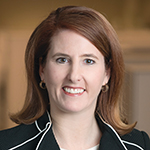
Petonic
Fran Petonic is senior vice president of philanthropy for Trinity Health. She says donors want to make more transformational gifts related to racial justice and health equity. Currently such gifts have come mainly from corporate donors giving tens of
thousands of dollars apiece, but the system's foundations are working to match high net worth individuals and corporate donors wishing to give more with big initiatives in these areas too.

From left, Lionel Terrell, Donovan Fletcher and Shakira Franklin gather in a hoop house at Bon Secours Community Works Urban Farm in Baltimore, which has programming supported in part by the Bon Secours Baltimore Foundation. Terrell and Franklin are
employed by Bon Secours Community Works, a nonprofit engaged in housing, youth programming and community development.
Trinity Health recently funded a $16 million effort to reduce inequity in 10 communities of color within its service area and is encouraging philanthropists to contribute to that effort. Trinity Health foundations also are aligning their campaigns to
support the system's strategic priorities having to do with improving health care outcomes for racial and ethnic minorities including by directing more resources to maternal and infant health.
Petonic says Trinity Health foundations are looking for opportunities to collaborate with other organizations in this health equity work. Partners could include churches, community centers and schools.
Petonic says Trinity Health foundations prioritize underserved communities of color in funding decisions. Foundation dollars have gone toward strengthening safety net clinics, increasing access to telehealth and expanding COVID testing and vaccination
efforts in minority and other underserved communities.
Tying the knot
Health care leadership and donors alike "are realizing that racism is a public health concern, and philanthropy can play a huge role in addressing it," says Petonic.
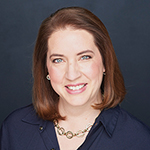
Ayres
Alice Ayres, president and chief executive of the Association for Healthcare Philanthropy, says, "I think this is one of the most exciting moments we've seen in some time in health care philanthropy, because we have the opportunity to be the fuel behind
this important work. There are few jobs in life that allow you to make this incredible connection between amazingly generous people and important work like this. It's very difficult but rewarding work.
"And the last two years have only further crystalized how important this work and its outcomes are."
Najjar says CommonSpirit is using foundation dollars to improve care access. Its foundations helped bring in through grant-writing nearly $6.2 million in federal grants along with other funding to expand telehealth. The money is supporting the purchase
of Internet-connected remote patient monitoring equipment and subsidizing video visits and remote treatment for vulnerable populations, especially low-income rural residents in medically underserved areas.
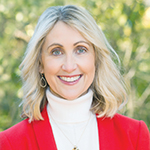
Kelley
Laurie Kelley is chief philanthropy officer at Providence St. Joseph Health. Kelley helps coordinate the efforts of the 40-plus foundations across Providence and leads the Providence National Foundation. She says Providence St. Joseph Health's system-level
and local foundations have been funding care access expansions in the service areas of that Renton, Washington-based system. This too includes telehealth expansions into rural areas and offering telehealth on patients' smartphones to reduce patient
travel times and provide convenient access to specialty care.
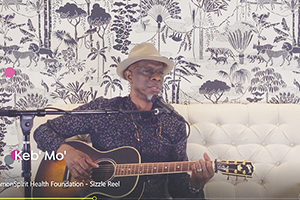
Keb' Mo' performs during a September virtual concert presented by CommonSpirit Health Foundation. The funds raised will promote health equity.
Providence foundations also have been investing in genomics and data analysis projects that pinpoint minority populations with specific diagnoses and then develop interventions to assist them, Kelley says. For instance, a study underway at Portland, Oregon's
Providence Brain Institute Multiple Sclerosis Center is exploring how best to address particular barriers faced by patients of color who have multiple sclerosis.
Social determinants
Tim Koder is president of Bon Secours Mercy Health Foundations at Bon Secours Mercy Health of Cincinnati — that system resulted from the 2018 combination of Bon Secours Health System and Mercy Health. Koder
says the system and its two legacy organizations always have directed their foundations' investments to the poor and underserved. To tackle socioeconomic conditions that lead to the development of chronic disease and shorten life spans, the foundations
support initiatives that undergird safe housing and neighborhoods, educational opportunity, job training and the like.
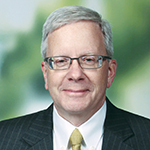
Koder
Many systems have community partners in their work to address basic human needs. Najjar says CommonSpirit foundation dollars have gone toward bolstering Connected Community Networks, online hubs that link people in need with social service providers working in homelessness, food insecurity, transportation access, and education.
Diversity in hiring
The systems' foundations also are getting behind efforts to ensure that clinical staff more closely mirror the racial and ethnic composition of the patient community.
Some of Providence's local foundations fund scholarships for high-achieving employees in low-wage positions who have a high potential to advance. These are staff who may not otherwise have the means to attain the education and training to move into clinical
roles such as phlebotomist, medical technician, radiology technician and registered nurse, says Kelley.
And CommonSpirit's corporate foundation is supporting the system's $100 million initiative with Morehouse School of Medicine, a historically Black institution, to graduate more minority doctors and other clinicians.
Mental health programming
Ayres says that many foundations also are increasing their fundraising for mental health programming.
Donors "are coming out of the woodwork" to support mental health fundraising campaigns, particularly in recognition of the toll the pandemic has taken on people's mental well-being, she says.
CommonSpirit and Providence corporate foundations are among those in the ministry that have explicitly named community mental health and well-being a funding priority. In support of this effort, CommonSpirit won a $2.25 million grant to expand medication-assisted
treatment for opioid use disorder at several of its facilities in California. And a Providence foundation in Alaska is funding a partnership with Anchorage schools to address teen mental health concerns.
Nation sees jump in giving toward racial justice
Alice Ayres, president and chief executive of the Association for Healthcare Philanthropy, says in the last few years more large health systems are explicitly making racial justice and health equity focal areas for their foundations.
This emphasis within health care philanthropy reflects a larger movement in giving generally in the U.S. In an Oct. 5, 2020, article titled "Racial justice giving is booming: 4 trends," Una Osili writes for The Conversation news site that "we are seeing an outpouring of donations from individuals, corporations and foundations that began to grow as soon as protests and other
activities in support of racial and social justice started to spread across the country." Osili is a professor of economics and philanthropic studies and associate dean for research and international programs at Indiana University –
Purdue University Indianapolis.
She writes that the outpouring includes record donations related to crowdfunding for victims of racial injustice, direct support for grassroots organizations and funding for historical Black colleges and universities. Osili says donors have given
many billions of dollars to such causes since the 2020 police killing of George Floyd in Minneapolis.
— JULIE MINDA
Health care foundations looking to diversify their own ranks
In the 28 years Tim Koder has been fundraising, "there has not been much diversity in the profession." While this is beginning to change, staff is still overwhelmingly white. "There is still a huge gap and so we're exploring how to recruit" a
more diverse slate of candidates to foundation jobs, says Koder, who heads up Bon Secours Mercy Health Foundations at Bon Secours Mercy Health of Cincinnati.
To prime the candidate pipeline, the Bon Secours Mercy Health foundations are exploring partnerships with universities to offer students paid internships and eventually employment, with a focus on students from underrepresented groups.
Koder says the system's foundations are making a concerted effort to increase the diversity of their boards including by ethnicity, race, gender and age.
Fran Petonic is senior vice president of philanthropy for Trinity Health. She is co-chair of the Association for Healthcare Philanthropy's conference in Chicago in October. The other chair is Birgit Smith Burton, founder of the African American
Development Officers Network. That organization has a goal of bringing 1,000 new fundraisers of color into the profession by 2030. Petonic and Burton are ensuring that the topic of staff diversity is front and center at the conference.
Petonic notes that about 70% of jobs in health care philanthropy are held by white women but executive roles in the field are disproportionately held by white men. She says the predominance of men in leadership roles may be due to implicit bias
— male board members may select leaders who look like them. And similarly, white female staff members may choose candidates who look like them when hiring.
She says donors generally have a say in how their dollars are spent. She says if foundation staffs become more diverse, foundations may be better able to court minority donors and also to get more input from people in minority communities about
where and how foundation dollars are spent.
—JULIE MINDA